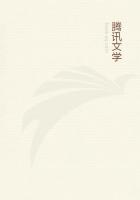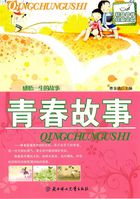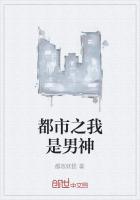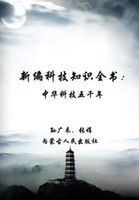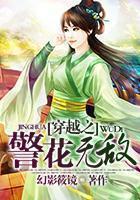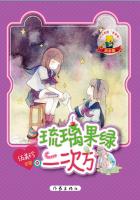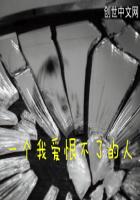In the popular phrase, Mrs. Westerfield was a showy woman. Her commanding figure was f inely robed in dark colors; her profuse light hair hung over her forehead in little clusters of ringlets; her features, firmly but not delicately shaped, were on a large scale. No outward betrayal of the wife's emotion rewarded the public curiosity: her bold light-gray eyes sustained the general gaze without flinching. To the surprise of the women present, she had brought her two young children with her to the trial. The eldest was a pretty little girl of ten years old; the second child (a boy) sat on his mother's knee. It was generally observed that Mrs. Westerfield took no notice of her eldest child. When she whispered a word from time to time, it was always addressed to her son. She fondled him when he grew restless; but she never looked round to see if the girl at her side was as weary of the proceedings as the boy.
The judge took his seat, and the order was given to bring the prisoner up for judgment.
There was a long pause. The audience--remembering his ghastly face when he first appeared before them--whispered to each other, "He's taken ill"; and the audience proved to be right.
The surgeon of the prison entered the witness-box, and, being duly sworn, made his medical statement The prisoner's heart had been diseased for some time past, and the malady had been neglected. He had fainted under the prolonged suspense of waiting for the verdict. The swoon had proved to be of such a serious nature that the witness refused to answer for consequences if a second fainting-fit was produced by the excitement of facing the court and the jury.
Under these circumstances, the verdict was formally recorded, and sentence was deferred. Once more, the spectators looked at the prisoner's wife.
She had risen to leave the court. In the event of an adverse verdict, her husband had asked for a farewell interview; and the governor of the prison, after consultation with the surgeon, had granted the request. It was observed, when she retired, that she held her boy by the hand, and left the girl to follow. A compassionate lady near her offered to take care of the children while she was absent. Mrs. Westerfield answered quietly and coldly: "Thank you--their father wishes to see them."
The prisoner was dying; nobody could look at him and doubt it.
His eyes opened wearily, when his wife and children approached the bed on which he lay helpless--the wreck of a grandly-made man. He struggled for breath, but he could still speak a word or two at a time. "I don't ask you what the verdict is," he said to his wife; "I see it in your face."
Tearless and silent, she waited by her husband's side. He had only noticed her for a moment. All his interest seemed to be centered in his children. The girl stood nearest to him, he looked at her with a faint smile.
The poor child understood him. Crying piteously, she put her arms around his neck and kissed him. "Dear papa," she said; "come home and let me nurse you."
The surgeon, watching the father's face, saw a change in him which the other persons present had not observed. The failing heart felt that parting moment, and sank under it. "Take the child away," the surgeon whispered to the mother. Brandy was near him; he administered it while he spoke, and touched the fluttering pulse. It felt, just felt, the stimulant. He revived for a moment, and looked wistfully for his son. "The boy," he murmured; "I want my boy." As his wife brought the child to him, the surgeon whispered to her again. "If you have anything to say to him be quick about it!" She shuddered; she took his cold hand.
Her touch seemed to nerve him with new strength; he asked her to stoop over him. "They won't let me write here," he whispered, "unless they see my letter." He paused to get his breath again.
"Lift up my left arm," he gasped. "Open the wrist-band."
She detached the stud which closed the wrist-band of the shirt.
On the inner side of the linen there was a line written in red letters--red of the color of blood. She saw these words: _Look in the lining of my trunk._
"What for?" she asked.
The fading light in his eyes flashed on her a dreadful look of doubt. His lips fell apart in the vain effort to answer. His last sigh fluttered the light ringlets of her hair as she bent over him.
The surgeon pointed to her children. "Take the poor things home," he said; "they have seen the last of their father."
Mrs. Westerfield obeyed in silence. She had her own reasons for being in a hurry to get home. Leaving the children under the servant's care, she locked herself up in the dead man's room, and emptied his trunk of the few clothes that had been left in it.
The lining which she was now to examine was of the customary material, and of the usual striped pattern in blue and white. Her fingers were not sufficiently sensitive to feel anything under the surface, when she tried it with her hand. Turning the empty trunk with the inner side of the lid toward the light, she discovered, on one of the blue stripes of the lining, a thin little shining stain which looked like a stain of dried gum.
After a moment's consideration, she cut the gummed line with a penknife. Something of a white color appeared through the aperture. She drew out a folded sheet of paper.
It proved to be a letter in her husband's hand-writing. An inclosure dropped to the floor when she opened it, in the shape of a small slip of paper. She picked it up. The morsel of paper presented letters, figures, and crosses arranged in lines, and mingled together in what looked like hopeless confusion.
3.--The Letter.
Mrs. Westerfield laid the incomprehensible slip of paper aside, and, in search of an explanation, returned to the letter. Here again she found herself in a state of perplexity. Directed to "Mrs. Roderick Westerfield," the letter began abruptly, without the customary form of address. Did it mean that her husband was angry with her when he wrote? It meant that he doubted her.
In these terms he expressed himself:

